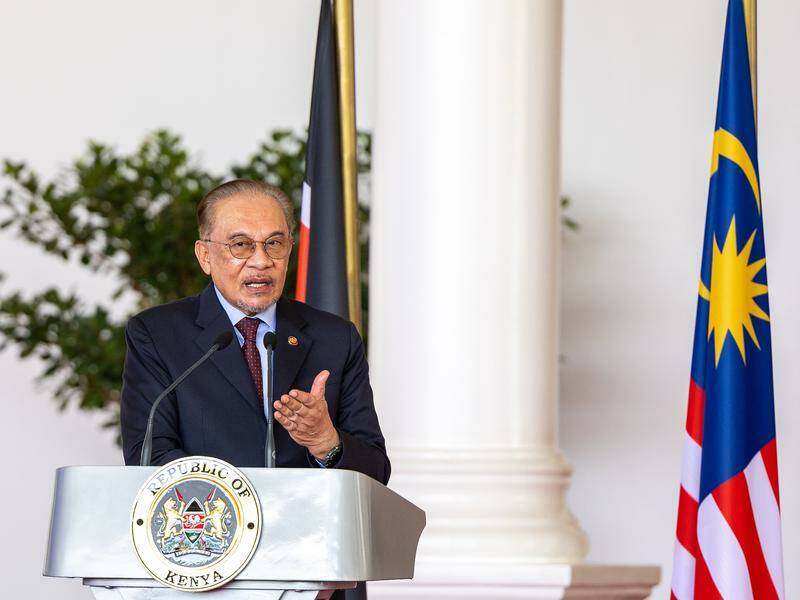
The race for control over Iraq’s oil resources is intensifying, particularly concerning the Common Seawater Supply Project (CSSP). This initiative is crucial for boosting Iraq’s oil output, making it a focal point in the competition between Western and Eastern firms. Recently, the landscape shifted as the Chinese firm, China National Petroleum Corporation (CNPC), reasserted its influence in the project.
Initially, the CSSP was spearheaded by ExxonMobil, with CNPC as a secondary player. However, after ExxonMobil withdrew from the project, CNPC took the lead but struggled to make significant progress. The project was ultimately handed over to TotalEnergies, which is working on a larger US$27 billion deal aimed at enhancing Iraq’s oil and gas production capabilities.
In a significant development last week, the China Petroleum Engineering & Construction Corporation (CPECC) announced its subsidiary, the China Petroleum Pipeline Engineering Corporation (CPPE), secured a US$2.524 billion contract from Iraq’s Basra Oil Company. This contract involves building pipelines to transport treated seawater to oilfields across Basra, a crucial step within the broader CSSP framework.
The implications of CNPC’s involvement in the Basra Seawater Transmission Pipeline Project (BSPP) raise questions about its potential ambitions to reestablish a dominant role in the CSSP. Iraq’s vast oil reserves, estimated by the Energy Information Administration to be around 145 billion barrels, make the country an attractive target for both Western and Eastern interests.
China’s interest in Iraq is underpinned by its strategic goals as articulated in the Belt and Road Initiative (BRI). This initiative aims to create a network of trade routes that connect Asia with Europe and beyond, and Iraq’s geographical position is vital to achieving these objectives. The infrastructure developments associated with oil and gas projects also allow for broader military and civilian applications.
In 2019, Iraq and China formalized their relationship through the “Oil for Reconstruction and Investment” agreement, which enabled Chinese firms to invest in Iraqi infrastructure in exchange for oil. This partnership was further solidified with the “Iraq-China Framework Agreement” in 2021, indicating a long-term commitment to collaborative projects.
The CSSP is essential for Iraq to maximize its oil production potential. The project involves using seawater from the Persian Gulf to sustain reservoir pressure, thereby optimizing oil extraction. Historical reports, including one from October 2010, highlighted that Iraq could significantly increase its oil output from just over 3 million barrels per day (bpd) to a potential plateau of 13 million bpd with the right infrastructure and investment.
Challenges persist, however, as seen during ExxonMobil’s tenure. Corruption within Iraq’s oil industry hindered progress, creating opportunities for CNPC to expand its role. Although CNPC initially struggled with technological and operational capabilities, TotalEnergies’ current involvement has raised hopes for better management of the project.
Despite these advancements, TotalEnergies has faced its own challenges with Iraq’s operating practices. The firm recently resisted pressures linked to the Iraqi National Oil Company, notorious for its corrupt practices. If TotalEnergies can navigate these complexities effectively, Iraq might see a more substantial realization of its oil production capacity.
China’s strategic approach in Iraq has been characterized by a systematic reduction of Western firms’ roles in major projects. Currently, Chinese companies manage approximately 34% of Iraq’s proven reserves, contributing significantly to the country’s oil output.
The strategy employed by CNPC and CPECC includes securing smaller, specialized contracts that allow them to maintain a presence without overtly competing for lead developer roles. This tactic has proven effective in past instances, such as their removal of ExxonMobil from the West Qurna 1 oil field development.
As the competition for Iraq’s oil resources continues, the dynamics between Western and Eastern firms will likely evolve. The developments surrounding the CSSP and related projects will be pivotal in shaping the future of Iraq’s oil industry and its role in the global energy landscape.






